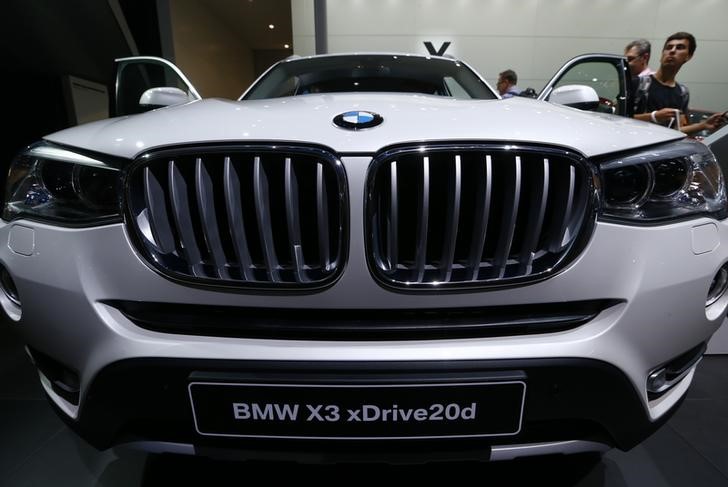By Geoffrey Smith
Investing.com -- Europe’s stock markets have rocketed on Monday on the back of weekend data showing that the number of people dying from Covid-19 is falling in Italy and Spain and may also have peaked in Germany and Austria.
The numbers are the clearest sign yet that the two companies worst affected by the virus are starting to bring it under control.
That allows investors, and companies, to dream of the day that people start to buy more than the bare essentials needed to stay alive.
A BMW is, perhaps, the ideal definition of a non-essential expenditure. Around 80% of the luxury carmaker’s dealerships in Europe, and 70% in the U.S., are currently closed. Hence a predictably dire update on Monday that showed sales were down 20% in the first quarter of this year.
However, BMW (DE:BMWG) stock was among the best-performing German stocks on Monday, along with other bombed-out cyclicals in non-essential goods and services. BMW was up 7.2% by 5:30 AM ET (0930 GMT), while Volkswagen (DE:VOWG_p) preferred stock was up 7.9% and Daimler (DE:DAIGn) stock was up 7.4%.
The DAX as a whole was up 4.0%, while the Stoxx 600 was up 2.8%, approaching a four-week high.
The bounce appears to be entirely top-down, macro-driven. Nowhere in BMW’s statement did it give it any hint of when its factories might return to normal production levels, or of when its showrooms might open again. The nearest it came to any forward-looking statement was sales head Pieter Nota’s comment that “In China, we are seeing the first signs of recovery with a strong order intake.”
BMW has perhaps more reason to hope that, when the pandemic fades, demand will prove to be just ‘pent-up’, rather than entirely lost. By contrast, there will be no way for the travel sector to make up for lost Easter bookings, or the events and hospitality sector to make up for three months or more of lost parties and conferences.
But it would be naïve to think that BMW’s sales are simply going to rebound to their pre-pandemic trajectory. Households and businesses around the world are going to emerge from this episode with weaker balance sheets, making them think twice before upgrading to a new series 7 or Mini Clubman. The need to incentivize with discounts will be greater than ever. That suggests a long period of lower-than-normal profitability, with all that that implies for shareholder returns.
Shareholders should enjoy the bounce, but be mindful that the economic policies that will dictate the shape of any recovery are still far from clear.
